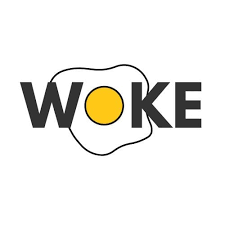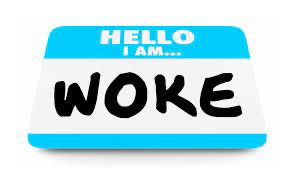This is Part I Of A 3 Part Discussion Of The Woke Phenomenon
Part I
Ever since I wrote my book, Politics of Fear: Beyond Left And Right (2005), I have struggled with defining and characterising the phenomenon previously often described as ‘political correctness’ and which today is often referred to as woke. As I noted in numerous publications, matters are complicated by the phenomenon of woke denialism – the tendency of supporters of this ideology to deny the very existence of woke. Woke rarely assumes the form of self-designation; it is a label that its opponents use to describe their political foes. Another complicating issue contributing to the confusion is that woke does not assume a systematic and explicit form. That is why in my study of the genealogy of identity politics – 100 Years Of Identity Crisis: Culture War Over Socialisation – I refer to this phenomenon as an ideology without a name. In part, this designation highlights the refusal of woke’s practitioners to render explicit and systematic their view of the world. The reference to namelessness also refers to the opaque and often depoliticised way its ideals and objectives are pursued.
I am far from satisfied with my usage of the term, ideology without a name since the ideas and practices associated with woke continue to gain momentum and now exercise a hegemonic influence over western societies. It may not have given itself a name, but it exerts a powerful influence over public life.
Recently, my interest in this question was further stimulated by an article, ‘What it Means to be Woke’ by The New York Times columnist Ross Douthat. Douthat drew attention to the absence of a ‘universally accepted label’ for the woke phenomenon. He suggests that our ‘climate of ideological enmity’ makes a ‘settled nomenclature difficult’. To resolve this issue, Douthat opts for using the term ‘Great Awokening’ to capture the woke phenomenon.
In his excellent Substack post, ‘Of course You Know What “Woke” Means’, Freddie De Boer seeks to overcome the definitional problem by outlining what he perceives as its ‘consistent attributes’. De Boer, like me, does not like the usage of the word woke and feels frustrated that its adherents refuse to give a name to their ideology.
One reason why the discussion on ‘what is woke’ is so underdeveloped and under-theorised is because of the tendency to analyse it in isolation from wider social and cultural developments. It is worth noting that the label woke is not the only political term that is not recognised or accepted by its supposed adherents. The term neo-liberal is frequently hurled at people who do not define themselves as such. I have yet to meet someone who introduces himself as neo-liberal. Commentators lazily refer to individuals and movements as populists. Yet most so-called populists do not use this label as a form of self-designation. Labels like Fascists and Cultural-Marxists are casually thrown at opponents and refer to people who genuinely have no political or emotional connection with these causes.
That politics is lost for words is beyond doubt. Since the late 1970s, when all the classical ideologies – communism, socialism, liberalism – imploded and conservatism reached a historical impasse, the vocabulary of western politics lost much of its meaning. Traditional political concepts like Left and Right continued to be used. Still, they often referred to people and movements whose ideas and behaviour had little in common with the classical ideals associated with these words. This was the era when the prefix ‘neo’ acquired significant usage. Terms like neo-cons, neo-liberals, neo-communists, and neo-fascists allowed many commentators and analysts to evade confronting the intellectual challenge of engaging with a radically new political landscape. Some prefer the ‘post’ prefix to the ‘neo’ one and write about post-communists, post-liberals and even post-conservatives. Unwilling or unable to let go of a vocabulary that has become emptied of meaning, commentators find refuge in the world of prefixes.
The exhaustion of classical western political vocabulary and the ideologies associated with them coincided with a phenomenon that was at the time described as the cultural turn. The cultural turn in western society was partly a misnomer for the transformation of the counter-culture of the west into the dominant cultural force. This shift from being adversarial to hegemonic constituted not so much a turn but a rupture with the traditions and values of the previous era. The cultural turn represented the displacement of one set of values by another. Outwardly, the cultural turn is the triumph of new post-material values over those associated with a materialistic capitalist society. Proponents of this thesis argued that these new post-material values supported the non-material ideals of well-being, anti-consumerism and environmentalism. The cultural turn was much more than a critique of capitalist materialism. Its historic mission was to detach society from the foundational norms of Western culture, whose values it condemned as outdated and dangerous.
The project of breaking with previous cultural norms aspired to nothing less than what Paul Kingsnorth has characterised as cultural inversion. This project did not aim to reject previous cultural forms merely but to erase them altogether. In the quiet and not-so-quiet political upheaval that followed, the political vocabulary of the West lost much of its salience. Nevertheless, it continued to be used with little regard for the fundamental changes that occurred.
Unfortunately, attempts to make sense of woke continue to rely on applying the old political vocabulary to explain what it is and how it works. Wokeness is often interpreted as the latest version of something that pre-existed it. There is a tendency to look for historical precedents of attitudes and behaviour that resemble woke. Douthat wrote of ‘the revolution inside American liberalism’ leading to a crucial ideological transformation of our time. This statement implies that woke practices are a distorted version of pre-existing liberalism. Freddy De Boer echoes this view and concludes that ‘“woke” or “wokeness” refers to a school of social and cultural liberalism that has become the dominant discourse in left-of-center spaces in American intellectual life’. Using the same approach, others depict woke as the contemporary form of Marxism or, more specifically, Cultural Marxism.
While searching through history to look for the origins of woke can provide useful insights, the tendency to portray it as the latest form of some pre-existing political movement risks overlooking its distinct original features. It also risks underestimating the significance of the rupture with the traditions of the past and how that break has led to the transformation of the political landscape.
Curiously, the quest for historical precedence coincides with a loss of political memory regarding the rise of woke. Consequently, the rise of woke is often perceived as a relatively recent development.
Contrary to the prevailing consensus, woke has been ascending for over half a century. As early as 1970, it was evident to a few intelligent observers that they were losing the battle against the counterculture. Indeed, the traditionalist conservative opposition to the cultural transformation of the United States had more or less lost its self-belief. A memo to President Richard Nixon from his advisor Daniel Moynihan in 1970 captured the prevailing trend. It stated:
‘No doubt there is a struggle going on in this country of the kind the Germans used to call a Kulturkampf. The adversary culture which dominates almost all channels of information transfer and opinion formation has never been stronger, and as best I can tell it has come near silencing the representatives of traditional America.’
Having taken over America’s media and institutions of culture, it was only a matter of time before what would be eventually called ‘woke culture’ gained ascendancy.
Moynihan’s warning was misunderstood and went unheeded. Looking back on the two or three decades that followed, it is evident that the significance of the cultural turn coinciding with the disintegration of classical ideologies and the politicisation of identity was not appreciated. Nor did the representatives of what Moynihan described as ‘traditional America’ have much of a clue about the scale of the setback they suffered. In this respect, they mirrored the reaction of the traditional left, who also regarded the rise of identity politics as a temporary phenomenon.
On both sides of the Atlantic, the significance and the durability of the counter-culture and its emphasis on the politicisation of identity were continually underestimated. Commentaries frequently portrayed identity politics in the past tense and prophesied its imminent demise. The leftist authors of the first book to refer to identity politics in 1973 claimed that ‘identity politics swallowed itself’.1 During the following decades, numerous commentators speculated about the imminent demise of political correctness.
Writing in 1995, Ross Posnock, a Professor of Literature, wrote that ‘after twenty-five years of identity politics’ a ‘renascent cosmopolitanism is currently gaining ground on the left; indeed, belief that the prestige of identity politics is fading in the academy is fast becoming the received wisdom’.2 ‘After Identity, Politics: The Return of Universalism’ is the title of an essay in New Literary History published in 2000.[3 Eight years later, in her history of identity, Linda Nicholson observed that ‘identity politics seems now to be largely dead, or at minimum, no longer able to command the kind of public attention that it did from the late 1960s through the late 1980s’.4 In the United Kingdom, in the wake of The Brexit Referendum and the election of Donald Trump, British journalist Janet Daley rather prematurely declared that ‘Identity politics is Dead’.
It is worth noting that the issuing of obituaries to woke continues today. Last year, the Conservative economist Tyler Cowen proclaimed that ‘wokeism has peaked’ – at least in the United States. ‘Is “woke” dead?’ asks a commentator in The Spectator. Wishful thinking leads its author to observe:
‘Perhaps the best cause for hope is simply time. New things will be needed to stimulate the new young. Firebrand wokeists who came of age in the 2010s are now in their forties. Those junior publishing staff will be senior staff soon, and maybe they’ll have to deal with young upstarts who think (often correctly) that they are barmy and bigoted’.
Countless observers since the 1960s have expressed the hope that as young people grow old, they will leave their woke toys behind. This form of generational wishful thinking has proved to be fundamentally flawed. Why? Because the so-called young firebrands are the products of a form of socialisation that leads them towards woke conclusions. And when they grow old, each new generation contributes to institutionalising new cultural ideals and practices. The tendency to associate the influence of woke to groups of campus radicals and their allies within the institutions of culture and education fails to grasp the scale of its influence.
In The Los Angeles Times, Michael Hiltzik made fun of the quixotic tendency to wish away woke. He noted, ‘Right-wing culture warriors say wokeness is dead. They can’t even define it’. Unfortunately, Hiltzik is not wrong. Despite occasional triumphs against the more grotesque manifestations of identity politics, wokishness retains its hegemonic status. For example, public revulsion against the transgender politics of former Scottish First Minister Nicola Sturgeon forced her to resign from her office. A triumph for good sense to be sure but one important victory does not compensate for decades of setbacks and defeats. For more than half a century, wokism has been on the ascendant. Its influence will continue to prevail until its opponents have greater clarity about the issues at stake.
Those who invest their hope in time imagine that woke will simply disappear someday. It will not, and whatever the outcome of the Long Culture Wars there is no possibility that the western world will return to the status quo ante.
Our discussion of what is woke will continue in Part II of this essay.
Wolff, R.P. and Gitlin, T. (1973) 1984 Revisited; Prospects for American Politics, Knopf : New York.
Posnock, R. (1995) ‘Before and After Identity Politics’, Raritan, vol. 15 (1).
p.99.
Lott, E. (2000) ‘After Identity, Politics: The Return of Universalism’, New Literary History 31, no. 4.
See Nicholson, L. (2008) Identity Before Identity Politics, Cambridge University Press: Cambridge.p.4.








We can go a long way towards understanding this phenomenon but rendering this movement vulnerable requires that we get our act together!
Many thanks Frank. Certainly the desire to link what is called 'Woke' to a pre existing ideology is strong, and as you note can be misleading, how can we hope to understand something that won't name itself and seems intent on misrepresenting it's origins. Is it too optimistic to think a precise definition would render this movement more vulnerable?